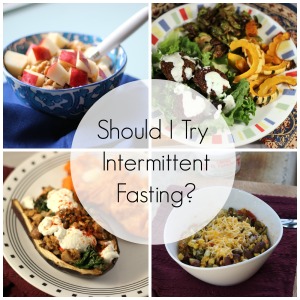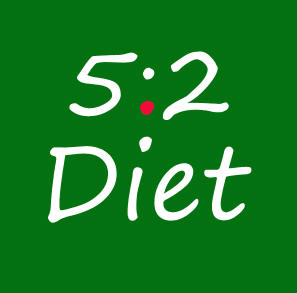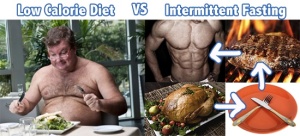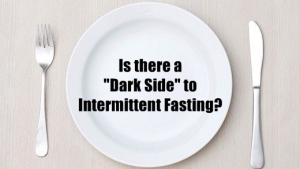What do Miranda Kerr, Ben Affleck and Christie Turlington have in common? Apart from being really, really ridiculously good looking, that link is intermittent fasting. Yes intermittent fasting is the new black and if you ain’t intermittent fasting, well you ain’t…….
A simple Google search on intermittent fasting finds it to be overwhelmingly positive – curing your cancer and making you saucily slim at the same time. You ripper! Unfortunately that’s probably since you’re coming across the websites of spruikers with an interest in intermittent fasting related products, or those without a health research background, who seem to promote anything slightly absurd and sexy. So, is intermittent fasting all it’s cracked up to be? Or is it just another crock?
What is intermittent fasting?
Before science gives you its definitive answer, what exactly is intermittent fasting? Broadly speaking, intermittent fasting refers to any dietary regimen where you stop eating or limit your calories for a defined period of time before returning to eating. There are various different timing ratios, but the most popular is the 5:2 pattern, where you eat normally for five days and for two days restrict your daily caloric intake to only 500-600 calories. Because you’re not really changing what you’re eating, but simply the timing, the diet’s proponents say it isn’t actually diet. But does this mean it works?
Why it might work?
There are several theories as to why intermittent fasting might work. A major one is that having small breaks from eating will lead to less eating overall – because you’re not eating during fasting and when you return to eating your stomach is smaller and you have less of an appetite.
Another proposed mechanism is that when you’re not eating, you’re not putting glucose into the bloodstream. This then means you don’t produce insulin in response to clear that glucose. Insulin causes you to preferentially burn glucose over fat. Therefore, if you fast you should, in theory, be burning fat instead of sugar, causing you to be less fat, more skinny and objectively more handsome/saucy/sexy. Hallelujah!
Does it actually work?
Theory is all good and well, but if this theory doesn’t translate to actual health improvements in humans then it don’t mean jack, Jack. Well, here we go then.
A review of various human based studies on time restricted feeding, a component of most intermittent fasting eating regimes, found it to lead to: weight loss, decreased LDL (bad) cholesterol, triglycerides and increased HDL (good) cholesterol in most, but not all cases (1). Looking fairly promising thus far.
Another review study, compared the benefits of intermittent fasting to standard caloric restriction: decreasing how many calories you eat. Standard caloric restriction was more effective than intermittent fasting for weight loss. But both equally decreased insulin resistance and visceral fat (2), which could prevent diabetes and various other chronic diseases. So if caloric restriction may be very slightly more beneficial than intermittent fasting, then why don’t you just eat less? Well, read on, my wayward son.
Why don’t you just eat less?
Yes, a major theory as to why intermittent fasting may work, is that you actually consume fewer calories. There is minimal to no scientific evidence surrounding this topic, but intermittent fasting may lead to an overall reduction in caloric intake and it may be easier to adhere to intermittent fasting than an overall low calorie diet in uncontrolled, non-scientific circumstances. It’s your classic occasional Ben and Jerry’s versus no Ben and Jerry’s type scenario!
Are there any negatives to intermittent fasting?
Before we provide our verdict, are there any negatives to intermittent fasting? So many questions!
A common concern surrounding intermittent fasting is that it will make you feel terrible and impair your: cognitive function, athletic performance and even sleep. Well, we can’t deny that it might make you feel lacklustre, especially initially. However, there is good evidence that intermittent fasting does not effect, or very modestly negatively effects athletic performance. Suggesting you would have to be a very high level athlete for it to impair your performance (3). As for sleep, it doesn’t appear to substantially negatively effect sleep (4) and finally, in terms of cognitive function, it may actually make you a little bit sharper. This is since the lack of food is said to stimulate hunter gatherer instincts and in turn raise cognition (5).
However, before you go out and stop eating, fasting regimens have not been tested in: diabetics, children, the very old and underweight individuals, and it is possible that this dietary routine may be harmful to these populations. If that describes you, maybe give it a miss for the time being.
Is it healthful?
Current scientific evidence is limited, however, intermittent fasting looks to be beneficial for metabolic health and weight loss, with no significant substantiated negative effects reported in the scientific literature yet. If you’re already healthy and have no problem restricting your calories, then based on current data it’s unclear if intermittent fasting will be of benefit to you. In contrast, if you struggle with metabolic health, weight loss and limiting calories, then intermittent fasting may be a good strategy.
Finally, whether you’re fasting or not, there is no replacement for good diet and you should try to eat healthy, nutritious foods.
Our verdict: moderately healthful.
We’d love to hear your opinion on intermittent fasting, please comment below.
I hope this has been healthful!








I currently don’t fast but have for years. It works quite well but is not for everyone. I do not recommend it to anyone who does not already have a good grasp of healthy eating. I did a comp with bodybuilding.com in 2013 and went from 191 19% body fat to 168 7% body fat in six weeks. Made the the must see transformations of the year.
http://www.bodybuilding.com/fun/we-mirin-volume-special-edition-strong-and-shredded.html
I’m number 13. Now I follow the m140 diet which I love way more
LikeLiked by 1 person
Excellent work. Good to hear a real life story about fasting from an athlete
LikeLike
I’ve been very interested in this lately. I’ve read a lot of reviews but I crave scientific evidence! Very nicely put and I appreciate having the facts!
LikeLiked by 1 person
Thanks Liz. I appreciate the comment!
LikeLike
I tried intermittent fasting (loosely) a year or two ago and I really enjoyed it. I would only eat between 7am and 7pm, each day rather than the 5:2. 12 hours is plenty of time to make the wrong decisions but it made me want to fit in as much good stuff as possible because no eating after 7pm was pretty tough. Chewing gum was my saviour in this case.
Reading your post has made me want to give it a go again. Maybe I could go 8am until 8pm this time and that would give me a little more flexibility. I think this diet has a lot to do with flexibility, you can fit it in no matter what your lifestyle is… work late nights? Great! Don’t get much chance to eat during work hours? AWESOME.
haha, I’ll stop now. Enjoy your day and thanks for posting :D!
LikeLiked by 1 person
Very true. It is definitely one of the more flexible diets!
LikeLiked by 1 person
Great post! More people should be made aware of the benefits! It definitely makes the mind sharper, and from my experience is one of the easiest ways to transform mental wellbeing from not so great to incredible.
LikeLiked by 1 person
Thank you very much! Excellent to hear your experiences with fasting.
LikeLike
Cranking out 200 miles a week at better than a 19 mph average on my bike, this would be impossible. However, for those who can afford a couple of days, more power to them.
Now, I’d have to imagine, if you’re training your body to burn only fat, that your body will adapt by storing any excess as fat (rather than replenishing glucose stores, etc.) so if one stops the diet (or overdoes it after the fast), that can lead to big trouble.
LikeLiked by 1 person
Yes, you’ve hit the nail on the head right there regarding excess fat storage and I think that’s where that aspect of the theory really falls over.
I think future studies will demonstrate the major differences are due to a reduction in overall calories consumed. Whether this leads to longterm health improvements, or whether excess fat storage ameliorates any of these long term caloric restriction benefits remains to be seen.
LikeLiked by 1 person
I have to disagree. Most fasting formats has nothing to do with calorie restriction. You are suppose to determine what your daily calorie macros are and eat those. The key is to shorten your eating window. This is why the 16 hour fast every day is the favorite amongst most people
The idea is not to restrict calories but to allow yourself a fasted period in which your body will use fat for energy. There is no way that a fasting protocol will later cause thr body to store more fat. If you do its either you were not eating enough calories to begin with or you fasted periods were to long. Putting you into starvation mode.
It’s not the end all be all way of eating but it’s a n excellent way to get the body to burn fat if you are not knowledgable enough to make a diet based on food choice timing calorie and macro ratios
LikeLiked by 1 person
I agree that most have nothing to do with caloric restriction. However, the 5:2 diet which was the feature of Michael Mosley’s documentary on intermittent fasting is likely the most popular in mainstream society. This advocates caloric restriction on two days of the week, not no calories, and for that reason I have considered fasting to involve either a completely restricted or somewhat restricted caloric window. Studies on the topic include both protocols.
I think there is very much a possibility it could lead to increased fat storage over time. The time off eating would lead to a greater response/sensitivity to insulin which would cause the body to preferentially store lipids. No long term study has confirmed or denied this. However, studies that have compared intermittent fasting to a restricted calorie diet of equivalent have found the results to be similar. Therefore, it appears more likely to be the caloric restriction theory at play rather than a change in fuel preference from fasting.
Your last point, I would absolutely agree with!
LikeLike
I say you go with what your body is telling you. Do things as they go. My stomach hurts a lot of times from eating to much because of giving birth years ago leaving me with a hernia. I think this information is helpful for people who have intestinal problems. Someone I know has chrones disease so this has raised interest into his diet.
LikeLiked by 1 person
Thanks for the comment. Absolutely, if that’s working for you, then why change it?
LikeLike
Living with chronic pain can eventually break someone down to do about anything for relief.
LikeLiked by 1 person
I can imagine. The human body does all it can to survive and thrive.
LikeLike
It starts with the Brain then the body. In pain I advise others to remain calm eyes closed. Breath slowly with the pain tapping into your bodies ability to focus in such a way to calm pain or even heal yourself of it.
LikeLiked by 1 person
I love your blogs. Thank you for another informative read. 🙂
LikeLiked by 1 person
Thanks, Tip-Tastic TAS. Love the name
LikeLiked by 1 person
Interesting I’ve never heard of this but do it mostly because I struggle with eating disorders! In my case it doesn’t work all too well but, as anything in the human body, may be do to other factors. I don’t really see the molecular biology adding up on this…
LikeLiked by 1 person
Yeah, it’s not for everyone. Regardless of the biological mechanism it does appear to be of benefit to the vast majority of people.
LikeLike
Do you think that’s because the vast majority overeat?
LikeLiked by 1 person
I think it’s probably a combination of overeating and the type of foods that are being eaten.
LikeLike
awesome post. i’ve actually heard testimonies on this. people should just learn to eat the right things at the right time, the right way. cos, if they fast 2 days and eat badly on the other five days, i think the results will be poor at the end right?
LikeLiked by 1 person
Thanks so much.
Not necessarily. This isn’t scientific, but from what I saw during Michael Mosley’s documentary on the matter, you don’t feel as hungry on the normal eating days and as a result consume fewer calories overall.
Regardless, you should still eat a healthy diet to meet your bodies nutritional requirements. Thanks for the reblog!
LikeLiked by 1 person
you’re highly welcome. Your response explains it much better. thanks
LikeLiked by 1 person
Reblogged this on PharmaTimes ng and commented:
Have you heard of Intermittent fasting? is it healthy?
LikeLike
Very informative and helpful, am curious myself
LikeLiked by 1 person
Thanks, Be Like Water!
LikeLike
Reblogged this on Is it healthful?.
LikeLike
I have tried every diet under the sun, including this one. I am a body builder and in the end, I prefer the consistency of eating clean constantly. Also, I tried the 16h fasting a day lately, under my nutritionist advice and I didn’t lose any weight. I train in the morning, waking up at 6:30, training and not be able to eat until 12, made my nails go blue and I had trouble keeping my body temperature. I guess I am one of those weirdos for whom this one just doesn’t work. I started having bfast again and dropped 2 kilos.
Also, I live to EAT, I love eating. So not eating, is no good for me.
Also I find that most of the people that follow this diet do it because they want their Ben & Jerry’s so they don’t necessarily adopt healthy habits while “dieting” so the moment they stop fasting, their old body comes back.
If it’s not sustainable, then it won’t last!!
Great article anyway.
LikeLiked by 1 person
I like you live to eat, Mary Lin, so I completely understand. I couldn’t agree more with what you said – healthy eating is key and there really is no substitute.
Thanks for the comment!
LikeLike
Great post. Thank you. I’ve been wondering about intermittent fasting. I’m not sure I could do it myself, but the science sounds interesting.
LikeLiked by 1 person
Thank you. Yeah it would certainly be a tough commitment.
LikeLike
Well analyzed. Here, in our nation we have it as a religious thing, a tradition, to fast a day in a week, and commonly believed as it clears the toxins out of the whole digestive system. I’ve never followed it though, these facts presented here are interesting.
LikeLiked by 1 person
Thanks, Snowlinrexima.
LikeLike
I have never tired intermittent fasting but I have done a one week cleanse/colema and it worked absolute wonders for not just my physical health but also my mental and emotional health as well. I was very surprised, in fact, with the results. Very interesting post!
LikeLiked by 1 person
Thanks, Sparrow St. Claire, interesting to hear.
LikeLike